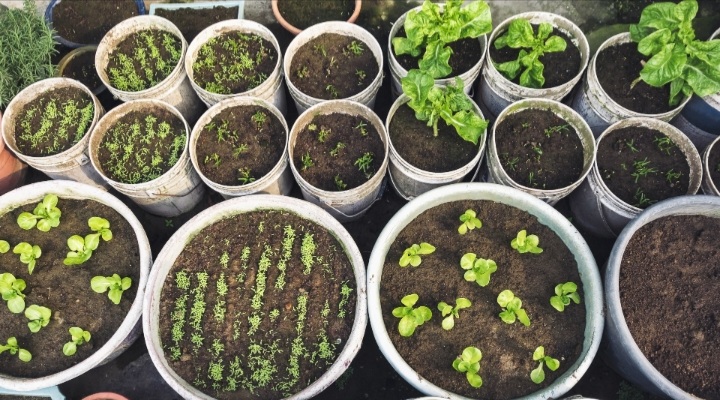How to grow crops using containers

By Obiabin Onukwugha
Before now, traditional farmers were only used to tilling the soil for farming their crops. But with advancement in technology, people have now learnt using containers to grow their crops. Such crops as yams, tomatoes, pepper, pumpkin, amongst others, can be grown in containers.
Container gardening can help you manage your little space in your backyard. But for every thing there is a howor technique.
Here we expose you to some techniques you can apply in growing crops using containers in your backyard or garden.
1) Choosing the right containers. Containers that have drainage holes to prevent waterlogging are required if you must have a healthy container garden. You can employ different materials like terracotta, ceramic, or even repurposed items like buckets or old watering cans and celaphane bags. Whatever material you are using, ensure they have holes for air ventilation and water draining.
Soil selection: Before planting a crop, find out the type of soil best for it and enquire if the soil at your garden is good for it. Where it is not the right soil, kindly source outside.
Sunlight. It is important to place your containers where adequate sunlight will get to your crops. This is important for healthy growth of crops.
Watering: Container plants tend to dry out faster than those in the ground. It is important that you monitor the moisture levels regularly. You can teach your children how to water the crops. Let them see it as part of their playing around. This will help prevent the crops from withering as a result of lack of water.
Fertilizing: Fertilizers play significant role in crop growth and yield. However, recent discoveries have proved that fertilisers cause harm to soil and crops at the long run and could propel some diseases in our bodies. Use of fertilizers should therefore be minimal to keep your fruits, crops and family healthy.
Companion planting: This technique involves planting two crops that can grow alongside each other. It does not only help in crop pollination but can serve as pest control and cover for each other.
Pest Control: It is important to regularly check out for common garden pests like aphids, caterpillars or snails. They can be destructive and cause your crops to die. Use organic pest control methods such as neem oil, insecticidal soaps, or companion planting with pest-repellent herbs like basil or rosemary to scare them away. You can also check the leafs and pick these pest out and destroy them manually where pesticides are not available.
